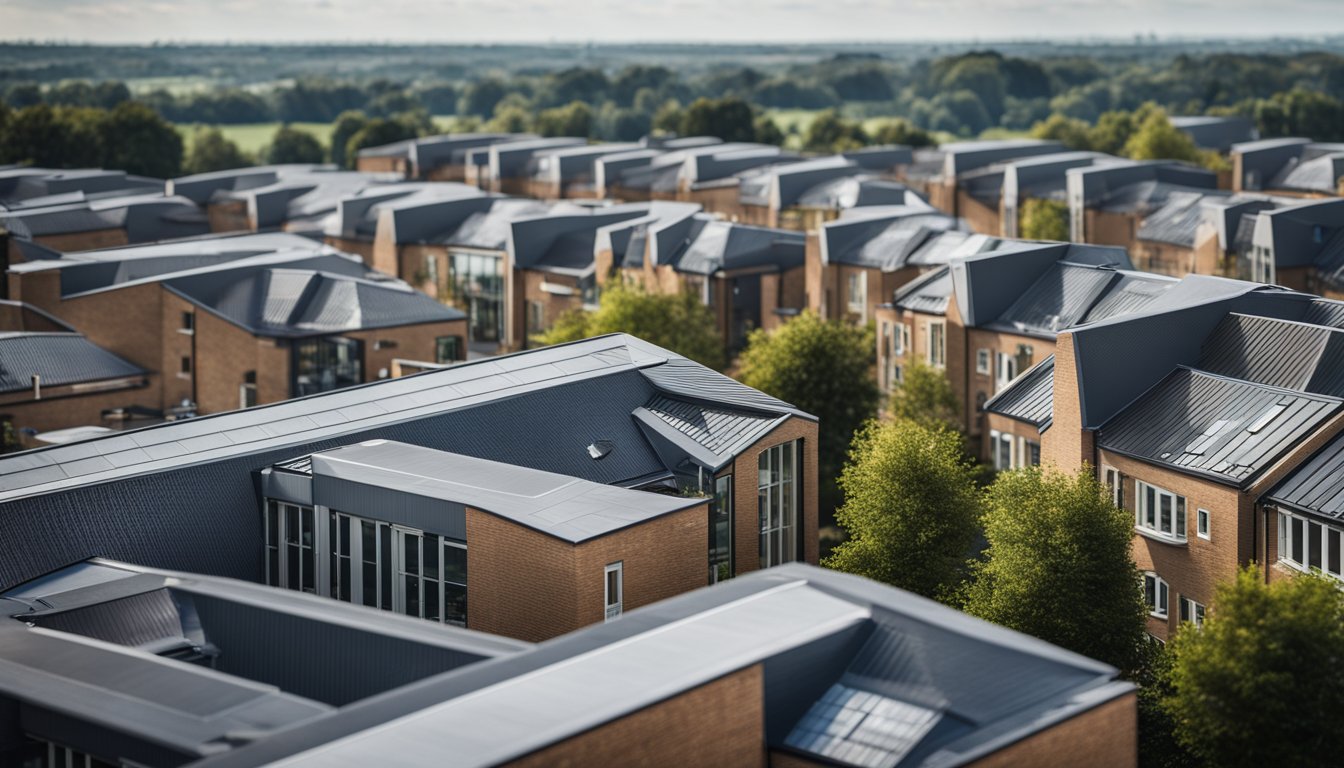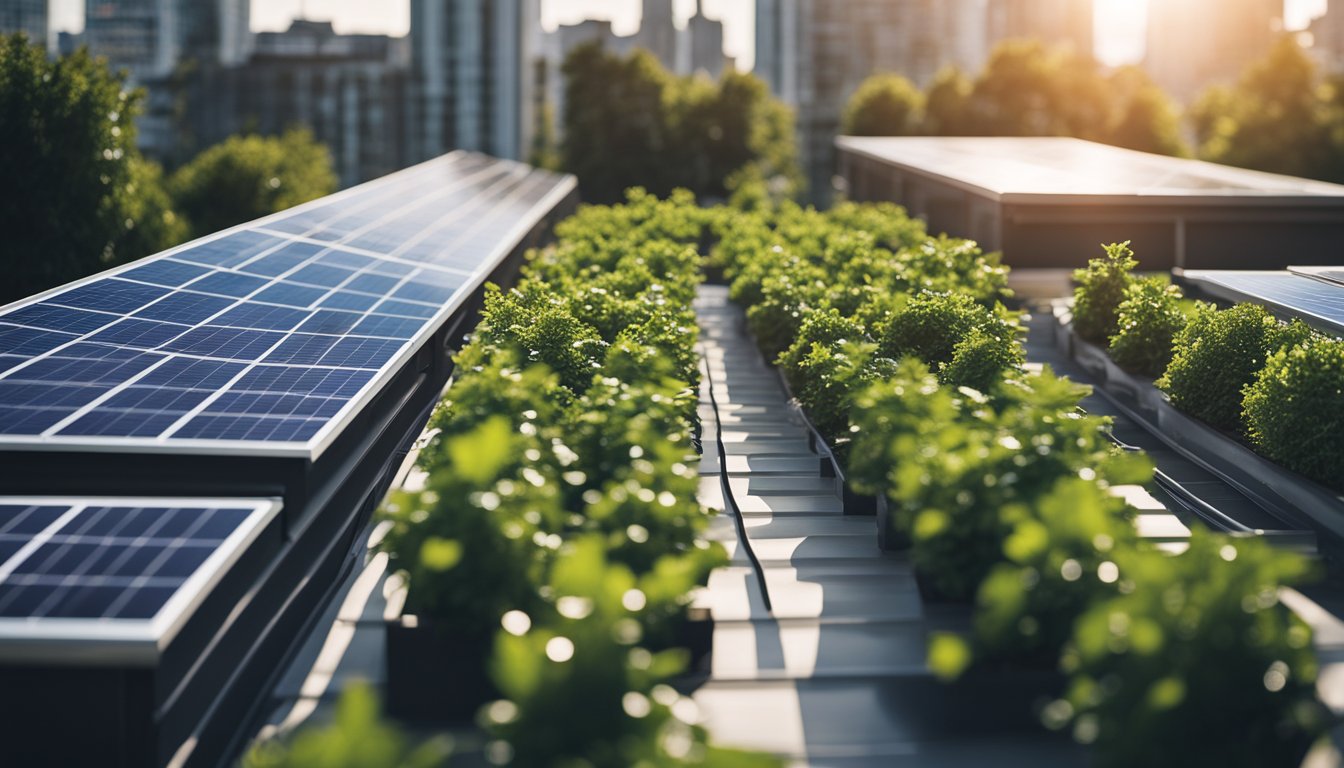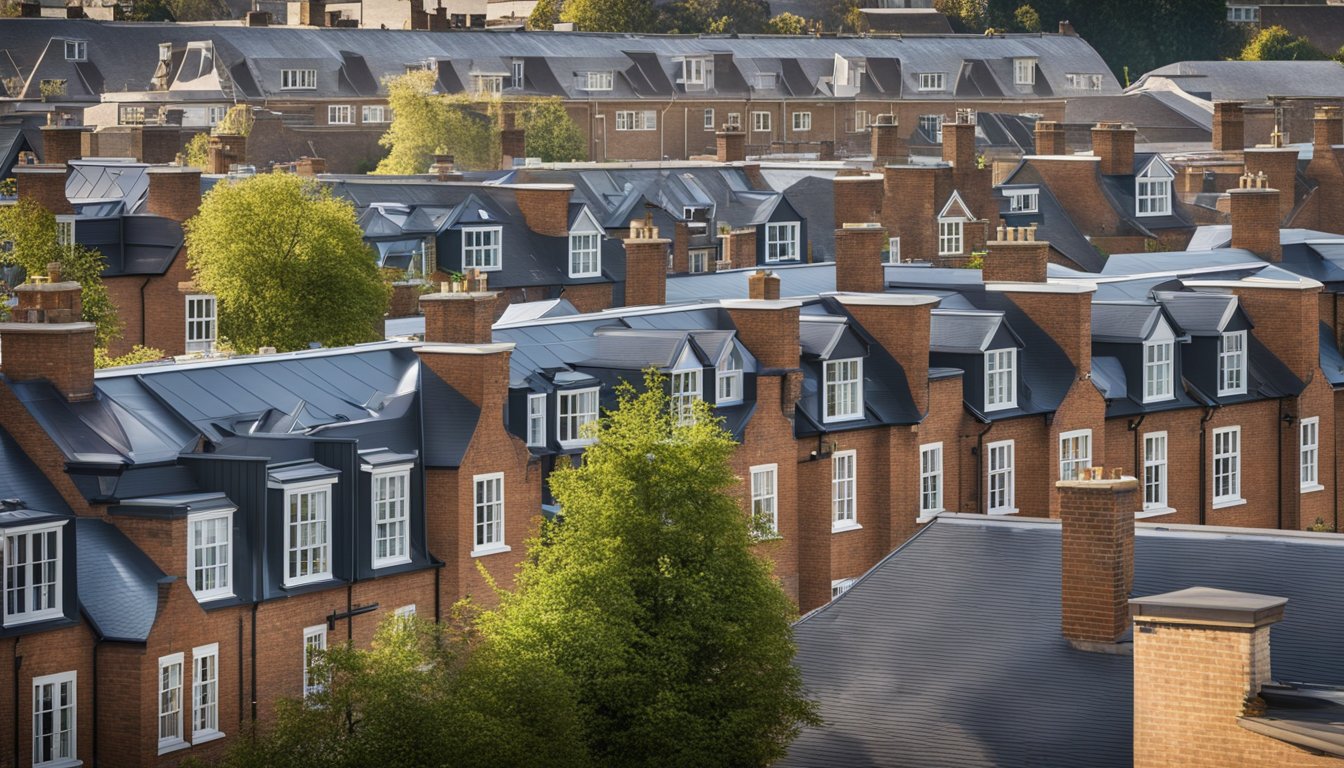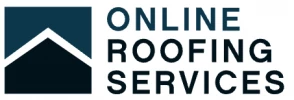Late updated: 17 Jan 2025 13:01
Written by: Oliver Bennett
Smart Roofing Solutions For UK Urban Dwellings: Enhancing Energy Efficiency and Sustainability
In the heart of urban UK, where space and efficiency are pivotal, smart roofing solutions are reshaping how we think about home design. The blend of technology with eco-friendly materials not only provides practical benefits but also contributes significantly to sustainability efforts. Smart roofing technologies today integrate IoT systems, solar panels, and energy-efficient insulation, offering both functionality and eco-consciousness.

The dynamic shift in modern roofing, particularly in urban areas, stems from the need to utilise limited space efficiently while enhancing energy performance. With innovations like GRP flat roofing systems and panelised designs, houses can be built faster and smarter, meeting the growing demand for sustainability. These designs not only reflect cutting-edge technology but also align beautifully with the architectural needs of bustling cities.
As urban environments continue to evolve, so do our expectations of what roofs can achieve. The combination of intelligent design and sustainable materials is setting new standards in urban architecture. This evolution not only addresses environmental concerns but also sets a precedent for future developments in urban housing.
Key Takeaways
- Smart roofs enhance sustainability and energy efficiency.
- Modern designs meet urban architectural needs effectively.
- Technological integration sets new standards in housing.
Essential Features of Smart Roofing for Urban Homes
Smart roofing solutions for urban homes in the UK incorporate cutting-edge technology, sustainable materials, and energy-efficiency features. These elements are crucial for reducing environmental impact, integrating modern technology, and ensuring optimal energy use in densely populated areas.
Sustainability and Environmental Impact
Sustainability is at the forefront of smart roofing choices. Sustainable roofing utilises eco-friendly materials, like recycled metals and photovoltaic panels, which are integral to reducing the carbon footprint. Green roofs not only aid in temperature regulation but also support biodiversity.
Circular economy principles play a role by encouraging the use of materials that are recyclable and reusable. This approach helps minimise waste and promotes long-term environmental benefits. Smart designs integrate rainwater harvesting, further decreasing urban water runoff and lowering pressure on drainage systems.
Technological Advances in Smart Roofing
Modern roofing solutions harness smart technology to enhance functionality. Smart roofing systems can include sensors that monitor roof health and communicate essential maintenance needs. Smart roof sensors detect leaks and temperature changes, ensuring timely interventions.
Innovation is apparent in the adoption of solar tiles and solar shingles designed for aesthetic appeal and efficient energy conversion. The integration of IoT-enabled systems and automation facilitates remote monitoring and control, providing peace of mind for homeowners.
Energy Efficiency and Insulation
Achieving optimal energy efficiency is critical in urban dwellings. Energy-efficient roofing systems feature advanced insulation materials that enhance thermal performance. Reflective coatings and cool roofs are essential for deflecting heat, reducing energy consumption, and lowering cooling costs.
The implementation of photovoltaic cells offers an additional layer of energy savings by generating renewable energy on-site. Furthermore, incorporating insulation materials like high-performance foam and reflective coatings reduces heat transfer, ensuring indoor comfort while minimising reliance on heating and cooling systems.
Design and Material Considerations

In the realm of smart roofing for urban dwellings, choosing the right design and materials is paramount. Our exploration focuses on building long-lasting structures, boosting visual appeal, and supporting environmental objectives.
Material Durability and Maintenance
When considering durability, metal roofing stands out as a resilient option. It offers protection against harsh weather and requires minimal maintenance. Unlike traditional materials like slate and concrete tiles, which need frequent upkeep, metal roofs are designed for longevity.
Eco-friendly roofing materials, such as recycled products, provide an added layer of sustainability. These choices not only reduce waste but can also decrease long-term maintenance costs. Selecting materials that balance toughness and upkeep is key to enhancing property value.
Innovative Design and Aesthetic Appeal
The aesthetic appeal of a home is greatly influenced by its roofing design. Modern roofs incorporate innovative materials like composite tiles that offer versatile and stylish finishes. These solutions are tailored for contemporary urban housing and can enhance a home's allure and value.
Flat roofs introduce additional design opportunities, such as terraces or green spaces. The integration of stylish, eco-friendly options can make a home stand out while contributing to the overall neighbourhood aesthetics. Our focus remains on aligning beauty with functionality.
Enhancing Biodiversity and Climate Resilience
Green roofs and living roofs play crucial roles in promoting biodiversity and climate resilience. By incorporating vegetation, these systems support urban ecosystems, providing habitats for wildlife and improving air quality.
Moreover, green roofing systems offer natural insulation and help reduce the urban heat island effect, making properties more energy-efficient. By embracing sustainable roofing solutions, we not only enhance the ecological footprint but also contribute to the health of urban environments.
Throughout our choices, we aim to create a balance between innovation and environmental responsibility.
Frequently Asked Questions

As we explore smart roofing solutions for urban dwellings, several key aspects come into focus. These include eco-friendly trends, cost-benefit analysis, weather considerations, durability, solar integration, and energy efficiency.
What are the current trends in eco-friendly roofing for urban homes in the UK?
In 2025, innovative materials and designs that prioritise sustainability are becoming increasingly popular. Green and living roofs, which provide environmental benefits alongside aesthetic appeal, are at the forefront. This trend enhances the energy efficiency of homes, making them more sustainable.
How can I compare the costs and benefits of different smart roofing systems?
One effective approach is evaluating initial installation costs alongside potential long-term savings on energy and maintenance. Many systems now offer smart capabilities that contribute to overall efficiency, often resulting in lower energy bills. By considering material longevity and maintenance needs, we can make more informed decisions.
What should be considered when installing a smart roof in areas with frequent inclement weather?
Durability and weather resistance are critical factors. These roofs often incorporate advanced materials that can withstand harsh weather conditions. It's vital to consult with experienced roofing experts to ensure appropriate installation methods are used to protect the property.
Which smart roofing solutions offer the best durability and longevity for properties in the city?
Smart roofs that utilise high-quality, durable materials, such as glulam beams or robust insulation, are preferred for urban settings. These materials provide increased lifespan and require less frequent repairs or replacements, making them cost-effective choices over time.
Can smart roofing systems be integrated with existing solar panel installations?
Yes, many current systems are designed for compatibility with solar technology. Integrating smart roofs with existing solar panels enhances energy efficiency by effectively managing energy consumption and production, maximising the benefits of solar energy.
How does the installation of a smart roof impact a property's energy efficiency ratings?
Installing smart roofing can significantly improve energy efficiency ratings by reducing heat loss and managing energy use more effectively. This improvement is achieved through high-quality insulation and the integration of energy-efficient technologies, thus lowering overall energy consumption for the dwelling.
